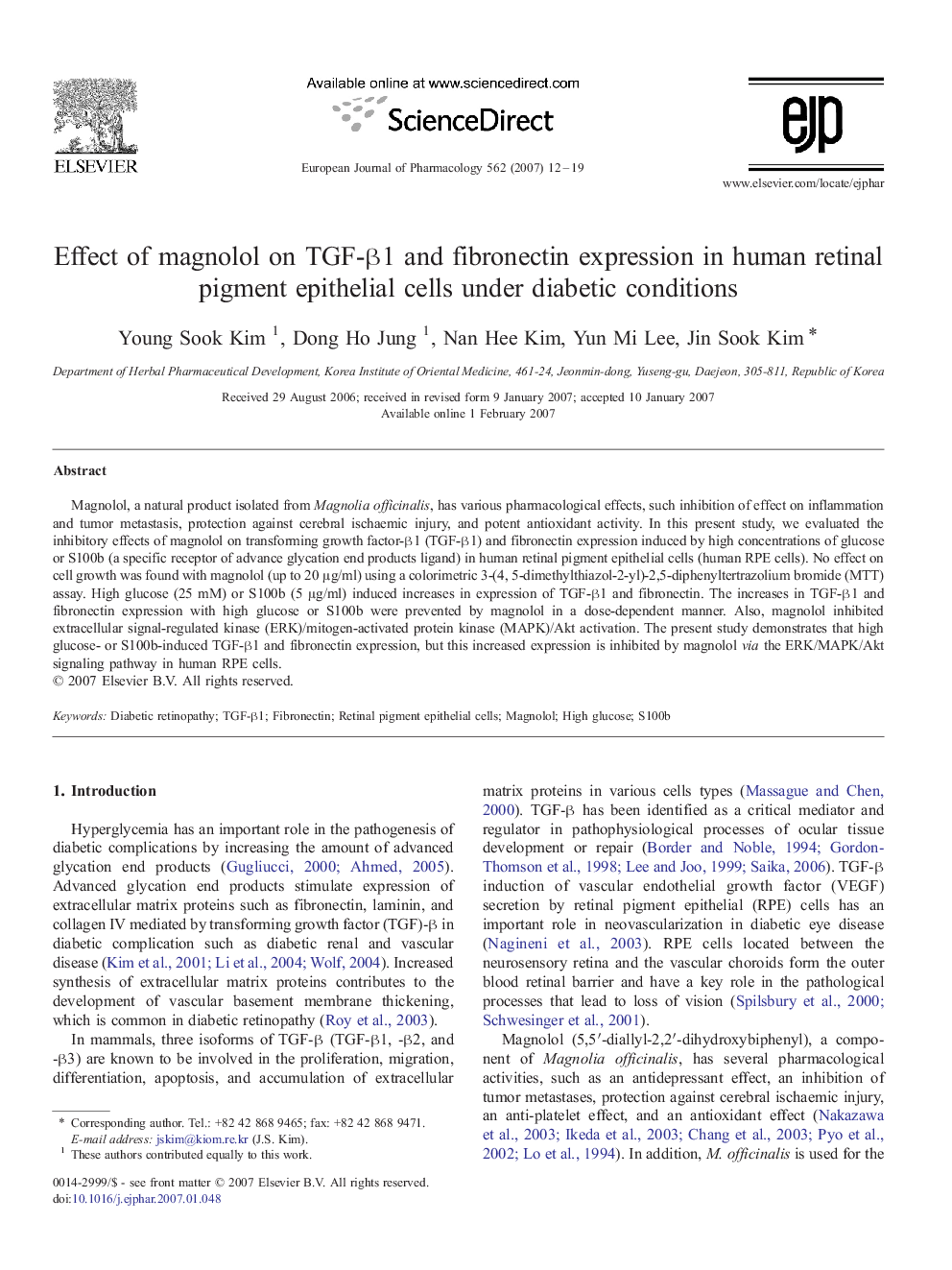| Article ID | Journal | Published Year | Pages | File Type |
|---|---|---|---|---|
| 2536241 | European Journal of Pharmacology | 2007 | 8 Pages |
Magnolol, a natural product isolated from Magnolia officinalis, has various pharmacological effects, such inhibition of effect on inflammation and tumor metastasis, protection against cerebral ischaemic injury, and potent antioxidant activity. In this present study, we evaluated the inhibitory effects of magnolol on transforming growth factor-β1 (TGF-β1) and fibronectin expression induced by high concentrations of glucose or S100b (a specific receptor of advance glycation end products ligand) in human retinal pigment epithelial cells (human RPE cells). No effect on cell growth was found with magnolol (up to 20 μg/ml) using a colorimetric 3-(4, 5-dimethylthiazol-2-yl)-2,5-diphenyltertrazolium bromide (MTT) assay. High glucose (25 mM) or S100b (5 μg/ml) induced increases in expression of TGF-β1 and fibronectin. The increases in TGF-β1 and fibronectin expression with high glucose or S100b were prevented by magnolol in a dose-dependent manner. Also, magnolol inhibited extracellular signal-regulated kinase (ERK)/mitogen-activated protein kinase (MAPK)/Akt activation. The present study demonstrates that high glucose- or S100b-induced TGF-β1 and fibronectin expression, but this increased expression is inhibited by magnolol via the ERK/MAPK/Akt signaling pathway in human RPE cells.
